Filter by

Japanese diplomacy and East Asian international politics, 1918-1931
Introduction: Japanese Diplomacy and Interwar East Asia's "Four Waves of International Change" -- The First Wave of International Change and Hara Diplomacy: September 1918 to November 1921 -- The Hara Government -- The Creation of the Washington System and the Second Wave of International Change: November 1921 to January 1924 -- The Takahashi, Katō Tomosaburō, and Yamamoto Governments -- Ne…
- Edition
- -
- ISBN/ISSN
- 9781032675985
- Collation
- -
- Series Title
- -
- Call Number
- -

Untold stories of the Spanish Civil War
- Edition
- -
- ISBN/ISSN
- 9781003414353
- Collation
- -
- Series Title
- -
- Call Number
- -
- Edition
- -
- ISBN/ISSN
- 9781003414353
- Collation
- -
- Series Title
- -
- Call Number
- -
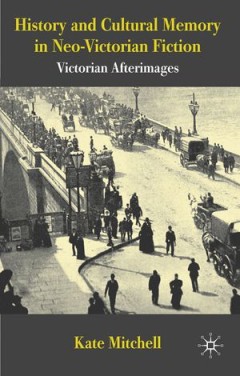
History and Cultural Memory in Neo-Victorian Fiction : Victorian Afterimages
History and Cultural Memory in Neo-Victorian Fiction combines innovative literary and historiographical analysis to investigate the way neo-Victorian novels conceptualise our relationship to the Victorian past, and to analyse their role in the production and communication of historical knowledge. Positioning neo-Victorian novels as dynamic participants in the contemporary historical imaginary, …
- Edition
- -
- ISBN/ISSN
- 9780230228580
- Collation
- IX, 222 halaman
- Series Title
- -
- Call Number
- 800 MIT h
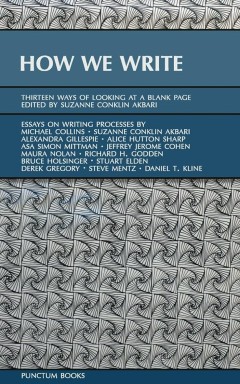
How We Write : Thirteen Ways of Looking At a Blank Page
The contributors range from graduate students and recent PhDs to senior scholars working in the fields of medieval studies, art history, English literature, poetics, early modern studies, musicology, and geography. All are engaged in academic writing, but some of the contributors also publish in other genres, includes poetry and fiction. Several contributors maintain a very active online presen…
- Edition
- -
- ISBN/ISSN
- 9780692519332
- Collation
- 182 halaman
- Series Title
- -
- Call Number
- 800 AKB h
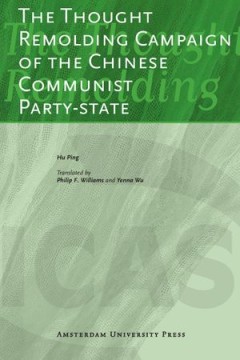
The Thought Remolding Campaign of the Chinese Communist Party-state
In its comprehensive analysis of a wide range of primary and secondary sources in both Chinese and Western languages, this authoritative work stands as the definitive study of the theory, implementation and legacy of the Chinese Communist Party's thought-remolding campaign. This decades-long campaign involved the extraction of confessions from millions of Chinese citizens suspected of heterodox…
- Edition
- -
- ISBN/ISSN
- 9789089644107
- Collation
- -
- Series Title
- -
- Call Number
- 909.82 PIN t
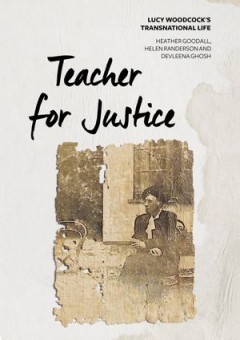
Teacher for Justice Lucy Woodcock's Transnational Life
"‘Teacher for Justice is a major contribution to the history of the women’s movement, working‑class activism and Australian political internationalism. But it is more than this. By focusing on the life of Lucy Woodcock – an unrecognised and under-researched figure – this book rewrites the history of twentieth-century Australia from the perspective of an activist who challenged convent…
- Edition
- -
- ISBN/ISSN
- 9781760463045
- Collation
- -
- Series Title
- -
- Call Number
- -
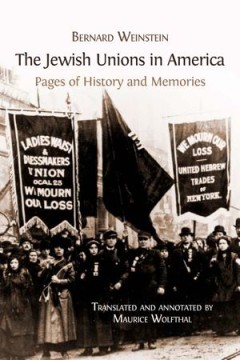
The Jewish Unions in America
"Newly arrived in New York in 1882 from Tsarist Russia, the sixteen-year-old Bernard Weinstein discovered an America in which unionism, socialism, and anarchism were very much in the air. He found a home in the tenements of New York and for the next fifty years he devoted his life to the struggles of fellow Jewish workers. The Jewish Unions in America blends memoir and history to chronicle this…
- Edition
- -
- ISBN/ISSN
- 9781783743551
- Collation
- -
- Series Title
- -
- Call Number
- -
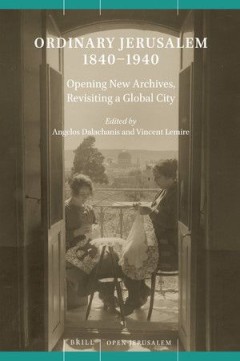
Ordinary Jerusalem, 1840-1940 Opening New Archives, Revisiting a Global City
In Ordinary Jerusalem, Angelos Dalachanis, Vincent Lemire and thirty-five scholars depict the ordinary history of an extraordinary global city in the late Ottoman and Mandate periods. Utilizing largely unknown archives, they revisit the holy city of three religions, which has often been defined solely as an eternal battlefield and studied exclusively through the prism of geopolitics and religio…
- Edition
- -
- ISBN/ISSN
- 9789004375741
- Collation
- -
- Series Title
- -
- Call Number
- -
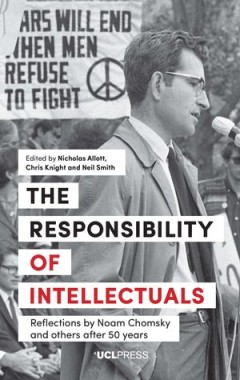
The Responsibility of Intellectuals
With the publication of ‘The Responsibility of Intellectuals’ half a century ago, Noam Chomsky burst onto the US political scene as a leading critic of the war in Vietnam. Privilege, he argues, brings with it the responsibility to tell the truth and expose lies, but our intellectual culture only pays lip-service to this ideal. The essay has been described as ‘the single most influential p…
- Edition
- -
- ISBN/ISSN
- -
- Collation
- -
- Series Title
- -
- Call Number
- 909.82 RES r
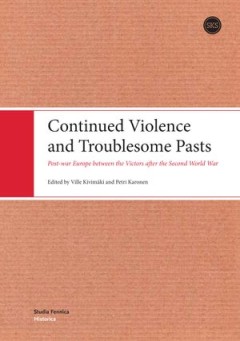
Continued Violence and Troublesome Pasts: Post-War Europe Between The Victors…
In most European countries, the horrific legacy of 1939–45 has made it quite difficult to remember the war with much glory. Despite the Anglo-American memory narrative of saving democracy from totalitarianism and the Soviet epic of the Great Patriotic War, the fundamental experience of war for so many Europeans was that of immense personal losses and often meaningless hardships. The anthology…
- Edition
- -
- ISBN/ISSN
- 9789522228574
- Collation
- -
- Series Title
- -
- Call Number
- 909.81
 Computer Science, Information & General Works
Computer Science, Information & General Works  Philosophy & Psychology
Philosophy & Psychology  Religion
Religion  Social Sciences
Social Sciences  Language
Language  Pure Science
Pure Science  Applied Sciences
Applied Sciences  Art & Recreation
Art & Recreation  Literature
Literature  History & Geography
History & Geography